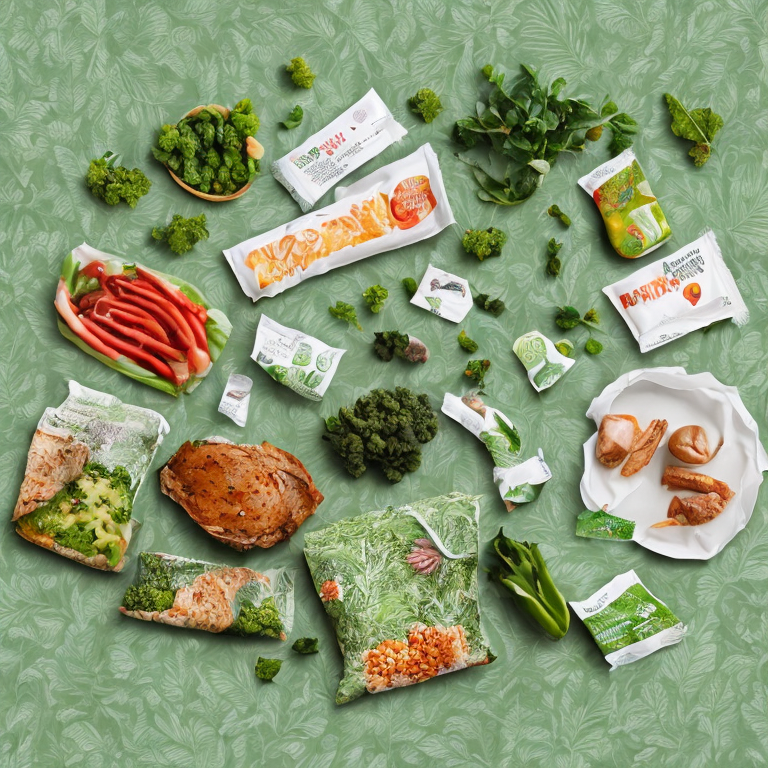How Affordability Shapes Food Choices
Unlock the survey
How Affordability Shapes Food Choices
User responses
110,514

Survey Type
Market Research
Audience
All Audiences
Top Insight
- Respondents prefer switching to cheaper alternatives in response to the rise in global food costs.
- Seasonal discounts are the most popular type of promotion among respondents.
- Respondents associated increased costs more with organic or healthy food than with other types of food products.
1.
How has the recent rise in global food costs affected your grocery shopping habits?
Insight
72%
More than average
respondents prefer switching to cheaper alternatives in response to the rise in global food costs.
72.03%
I Switched To Cheaper Alternatives
I Switched To Cheaper Alternatives
72.03%
85
I Spend More On Food Now
12.71%
15
I Haven't Changed My Shopping Habits
11.02%
13
I Buy Less Of The Same Products
5.08%
6
2.
What type of promotions or discounts do you look for when buying food?
Insight
3.1X
More than average
consumers prefer seasonal discounts than they do referral discounts.
41.15%
Seasonal discounts
Seasonal discounts
41.15%
172
Volume discounts
32.78%
137
Loyalty discounts
13.64%
57
Referral discounts
13.16%
55
3.
Have you stopped buying certain food products or brands due to increased costs? If yes, which ones?
Insight
2X
More than average
respondents associated increased costs with organic and healthy food than with imported or luxury food.
71.43%
Yes, Organic Or Health-focused Products
Yes, Organic Or Health-focused Products
71.43%
85
No, I Continue To Buy The Same Products
41.18%
49
Yes, Imported Or Luxury Food Items
34.45%
41
Yes, Premium Or Specialty Brands
20.17%
24
4.
Are you actively looking for more affordable alternatives (e.g., private labels, bulk buying) to your usual food choices?
Insight
60%
More than average
consumers prefer to buy in bulk when looking for affordable alternatives.
60.22%
Yes, I Buy In Bulk Or Shop Sales More Often
Yes, I Buy In Bulk Or Shop Sales More Often
60.22%
993
Yes, I’ve Switched To Store Brands/private Labels
31.11%
513
No, But I’m Considering It
4.55%
75
No, I Still Buy The Same Products
4.12%
68
5.
If you've reduced your purchases of trending food products, what's the primary reason?
Insight
5.6X
More than average
respondents chose to reduce trending food products for health concerns than they preferred traditional options.
70.7%
Health Concerns
Health Concerns
70.7%
152
Not Satisfied With Taste Or Quality
39.53%
85
Prefer Traditional Options
12.56%
27
Too Expensive
6.05%
13
6.
What factors influence your decision to choose foods marketed as innovative or sustainable over traditional options?
Insight
2.1X
More than average
consumers prefer innovative or sustainable foods for health benefits than for quality.
51.81%
Health benefits
Health benefits
51.81%
57,253
Convenience
36.3%
40,117
Flavor
30.93%
34,178
Quality
24.26%
26,816
Brand reputation
14.83%
16,392
7.
What strategies do you use to manage rising food costs?
Insight
87%
More than average
respondents prefer to manage rising food costs by switching to lower-cost or generic brands.
87.51%
Switching To Lower-cost Or Generic Brands
Switching To Lower-cost Or Generic Brands
87.51%
1,261
Meal Planning And Reducing Food Waste
6.25%
90
Reducing Takeout Or Dining Out
6.18%
89
Buying In Bulk Or During Promotions
4.65%
67
8.
Have rising food costs changed your perception of value in food innovations or new product launches?
Insight
70.76%
More than average
consumers prefer innovation over price 3.7 times more than waiting for discounts or promotions on new product launches.
70.76%
No, I Still Value Innovation Over Price
No, I Still Value Innovation Over Price
70.76%
1,249
Yes, I Wait For Discounts Or Promotions Before Trying New Products
18.64%
329
No, Rising Costs Haven’t Affected My Perception Of Value
9.69%
171
Yes, I Am More Critical Of Pricing In New Products
0.96%
17
